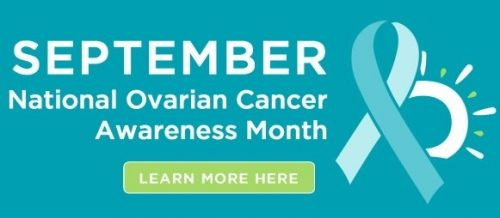Ovarian Cancer Awareness Month: 5 Common Symptoms

September is ovarian cancer awareness month and activists are urging women to undergo annual tests since only around 19% percent of this type of cancer is found in the early stages, according to the National Ovarian Cancer Coalition (NOCC).
Ovarian cancer remains difficult to detect, and women are often not diagnosed until the disease has reached an advanced stage. Some of the potential signs and symptoms of ovarian cancer are bloating, pelvic or abdominal pain, trouble eating or feeling full quickly, feeling the need to urinate urgently and fatigue.
"Every woman should undergo a regular rectal and vaginal pelvic examination. If an irregularity of the ovary is found, alternatives to evaluation include transvaginal sonography and/or tumor markers," says the NOCC on its website.
Each year, approximately 20,000 women in the United States get ovarian cancer. Among U.S. women, ovarian cancer is the eighth most common cancer and the fifth leading cause of cancer death, according to the Centers for Disease Control and Prevention.
All women are at risk for ovarian cancer, but older women are more likely to get the disease than younger women. About 90% of women who get ovarian cancer are older than 40 years of age, with the greatest number of cases occurring in women aged 60 years or older.
Published by Medicaldaily.com



























